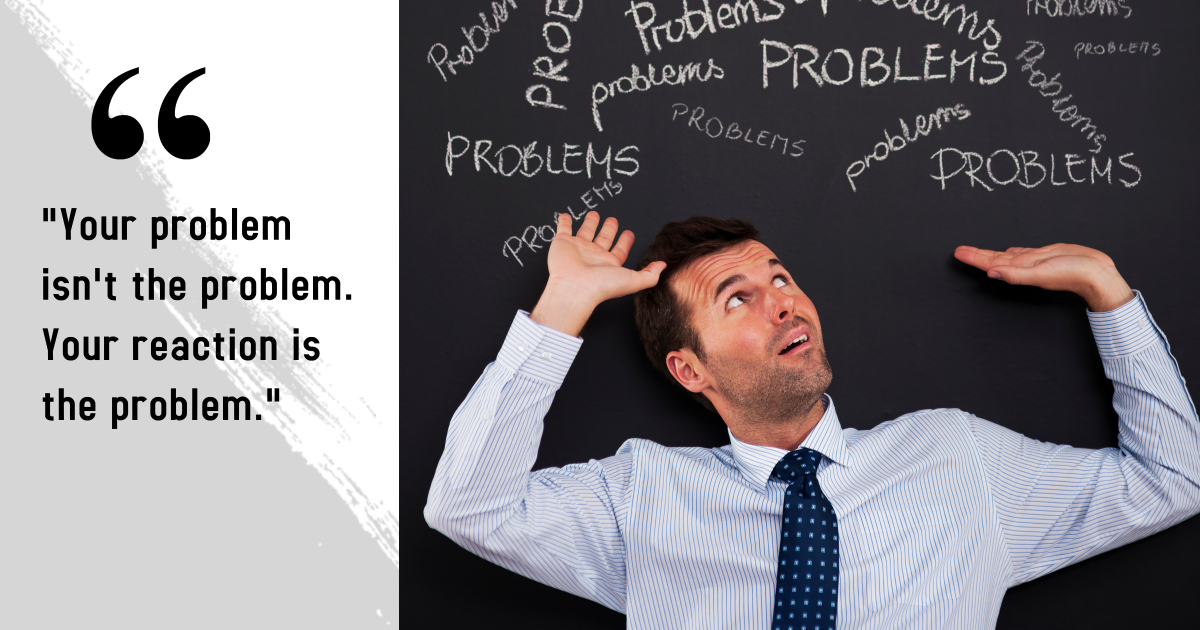As we all know, anxiety is a natural response of our body to worry and fear. However, living with anxiety disorder can be a debilitating and challenging task, and it may interfere with your daily life routines.
Anxiety disorders, including post-traumatic stress disorder (PTSD), social anxiety disorder (SAD), panic disorder, generalized anxiety disorder (GAD), and obsessive-compulsive disorder (OCD), can affect a person in a variety of ways. Some common symptoms of these disorders include trembling, heart palpitations, feeling out of control, and shortness of breath.
Once a doctor diagnoses a person with an anxiety disorder, they may prescribe medications or therapy to overcome it. Also, making some significant dietary changes can make a potentially big difference to the condition. Here are all the anti-anxiety diet foods and instructions for making the best diet for anxiety.
Foods to Reduce Anxiety
Studies concerning the best anti-anxiety food items to reduce anxiety are new; however, many nutritionists list items they recommend to deal with anxiety disorders.
Balanced Diet
“Eating a balanced diet that is high in essential nutrients can improve the mental state,” says psychiatrists all over the world. “Foods such as vegetables, fruits, and nuts are high in nutrients, amino acids, and vitamins, and minerals.”
These are also packed with a high quantity of antioxidants. Nutritionists say, “Antioxidants are the most important things in the body that help combat health issues like anxiety.” They usually work by fighting free radicals and toxins that may lead to cell damage. When this damage occurs in the nervous system and the brain, anxiety also takes place. In simple words, a plant-centric diet is a weapon that can help with your mood by providing nutrition.
Vegetables
Vegetables rich in nutrients like cruciferous vegetables will help lower inflammation in the body, which reduces symptoms of anxiety and depression.
If salads and leafy green vegetables are not your things, you may add a bag of frozen peas or carrots to add nutrients to your meal.
Fruits
Just like fresh green leafy vegetables, fruits also potentially benefit from mood disorders like anxiety disorder. A study conducted in 2015 with more than 6000 women determined that adding fruit to the diet can be important for reducing the prevalence of depressive symptoms for people with mood disorders. Fruits like berries, apples, plums, and whole grains have antioxidants that reduce the symptoms of anxiety.
Watermelon and Pomegranate Juice
A study in 2015 had people with depressive disorders, including anxiety disorder, intake plant-based diets, including the consumption of watermelon and pomegranate juice. The participants had substantial benefits like improvement in anxiety and depression.
Watermelon and pomegranate have tremendous anti-inflammatory and antioxidant properties. They contain many minerals, poly-nutrients, and vitamins as well. These poly-nutrients will help free radicals and reduce inflammation.
Citrus Fruits
Citrus fruits like oranges are good for anxiety. They are rich in vitamin C that helps people have a better mindset and feel relaxed. Citric fruits are also rich in antioxidants leading to better management of anxiety symptoms.
Vitamin C supplements can also be beneficial. A controlled trial shows that a higher concentration of Vitamin C in plasma reduces anxiety.
Omega-3 Fatty Acid
Research indicates that high doses of omega-3 fatty acid supplements—up to 2,000 mg every day—can assist in lessening anxiety signs. Eating a food plan rich in omega-3s also can be beneficial. “Choose meals which can be rich in magnesium, zinc, and omega-three fatty acids, which include spinach, legumes, nuts, complete grains, salmon, oysters, and asparagus,” says the nutritionist. Any fatty fish is a secure bet to feature an omega-three punch in your weight-reduction plan. If you do not enjoy seafood, flax seeds are also an extremely good source of fatty acids.
Probiotics
A 2016 study takes a look at how probiotics can be useful as a new treatment for anxiety. Probiotics are present in fermented meals like kimchi, sauerkraut, and pickles. If all that vinegar brine is unappealing, yogurt, kefir, and kombucha are also exceptional resources of probiotics.
Chocolate
Studies have additionally tested the link between the consumption of cocoa and the treatment of anxiety and stress problems. Chocolate bars with an excessive cocoa content, like darkish chocolate, are the most beneficial.
Water
Staying hydrated is beneficial to all people, but in step with specialists, it has extra blessings for patients with anxiety. In reality, one 2018 take a look at discovered an affiliation between drinking simple water and the reduced danger of depression and anxiety in adults.
“Water in and of itself has calming houses,” drinking water and staying hydrated can reduce the intensity of the anxiety and will assist in decreasing cortisol levels. Not handiest through the actual hydration benefits for frame and brain feature; however, sensory stimulation can also ruin the anxiety-inducing mind. Keeping your attention on ingesting the water offers your thoughts and body the break it needs to reduce the depth of the anxiety.”
When you’re tired of plain water, attempt upping your fluid consumption with chamomile tea. “Chamomile tea is an extraordinary way to wind down or take peaceful moments all through the day,” nutritionists said, “It has benefits that improve general health and may help with stress-relief.”
Just make certain to seek advice from your healthcare issuer first. “Generally, clinical studies that appear to recognize the benefits of teas and herbs frequently have mixed or inconclusive results,” doctors explain. “If you’re seeking to begin or try a new alternative remedy to assist with mental health problems, please talk to your provider first.”
Foods and Drinks to Avoid for Anxiety Management
Just like some foods and drinks improve the symptoms of anxiety, some food items may worsen your condition and hence must be avoided. Food items can help and hinder anxiety issues by either providing the calming nutrients or nutrients that trigger anxiety.
Processed foods
Research determined that ingesting processed meals increases feelings of intellectual misery. This takes place for two predominant motives. “Foods which are processed are more likely to be deficient in nutrients.” Meaning they aren’t supplying you with the antioxidants and nutrients you need to keep your temper.
Additionally, processed ingredients are excessive in saturated fat, trans fat, and omega-6 fatty acids. These are detrimental to your health and can boom stages of inflammation. “An ongoing country of irritation is understood to purpose mood and hormonal modifications as properly,” says nutritionists. Eating an anti-anxiety food regimen approach heading off processed meat (such as pepperoni, hot puppies, or bacon), fried food, and packaged snacks.
Sugary liquids
A 2017 observation found that accelerated sugar intake from sweet meals or drinks increases the threat of temper disorders. “Most refined drinks or meals can play a huge part in triggering anxiety.” They are void of nutrients and minerals and might cause a spike in blood sugar, a brief drop. They will take vitamins and minerals out of the body, those nutrients that are vital to resolving anxiety. Therefore, you must refrain from most refined drinks at all expenses. That manner, eliminate fruit juice, soda, and sports drinks from your eating regimen. Replace those with water or chamomile tea.
Refined carbohydrates
A 2018 look at mice suggests an extended consumption of carbohydrates could predispose a person to have anxiety-like signs.
“Refined carbohydrates like the ones located in sugar-laden ingredients together with pastries and comfort foods can cause a state of anxiety in several approaches.” These meals motivate a brief rise and fall in blood glucose which results in mood and hormonal imbalance. These ingredients additionally go away from us feeling hungry greater fast, which could motivate anxiety. To restrict this response, reduce the intake of cakes, cookies, sugary cereals, white bread, and processed pasta.
Caffeine
Drinking an excessive amount of your morning coffee could make you feel jittery and on edge. Caffeine may interfere with sleep if it is too past due inside the day, and mistaken sleep can affect your intellectual fitness. Research has observed an affiliation between high caffeine consumption and anxiety and depression. If you keep it is probably trouble for you, try steadily lowering the wide variety of cups you have got consistent with the day. Switch to decaf. And, don’t forget about dialing lower back the energy drinks and soda, too.
Alcohol
Like caffeine, alcohol is a first-rate sleep disruptor. A glass of wine before bed can also make you feel tired, but it regularly impacts your sleep. On top of that, alcohol abuse disorders are connected to anxiety issues—including depression. You must reduce your alcohol consumption. Alternate the drink with a mocktail or flavored seltzer. Or strive for one of the many new non-alcoholic IPAs that many breweries provide.
Is Fasting Good For Anxiety Disorders?
We put foods and drinks in our bodies to impact our physical and mental health conditions most of the time. Furthermore, fasting is also a method that people can use to regulate anxiety disorders. Some studies found out that fasting reduces anxious behavior, thus reducing anxiety and depression and improving memory.
Anxiety produces stress on the body that often causes high or low blood sugar. Suitable fasting methods, including intermittent fasting and water fasting, will help stabilize the blood sugar levels.
Typically, putting food in our body can spike blood sugar, and then our body will lower it again. During the term of fasting, the lack of food leads to less spiking of blood sugar level and reduced anxiety.
Other Ways to Manage Symptoms of Anxiety
Along with adapting to diet for anxiety disorders, people can also manage anxiety symptoms in many other ways:
Medications
Doctors prescribe a plethora of anti-anxiety medications for the treatment of anxiety. From selective serotonin reuptake inhibitors (called SSRIs) like Zoloft (Sertraline), Lexapro (Escitalopram), Celexa (Citalopram), and Paxil (Paroxetine) to serotonin-norepinephrine reuptake inhibitors (SNRIs) like Pristiq (Desvenlafaxine) and Effexor (Venlafaxine), doctors recommend using numerous medications for anxiety disorders.
One of the most used categories of anti-anxiety medications is Benzodiazepines. These are the most effective and safe medicines for the management of short-term anxiety. Most popular anxiety disorder medications include Xanax (Alprazolam), Ativan (Lorazepam), Klonopin (Clonazepam), and others.
The anxiety medications mentioned above are FDA approved and safe for treating anxiety disorders such as generalized anxiety disorder, post-traumatic stress disorder, social anxiety disorder, panic disorder, depression, comorbid anxiety, and insomnia caused due to anxiety issues.
Supplements
Some people are not able to intake all the nutrients they need through food. Also, adding some vitamins can help positively impact anxiety disorder. Consider taking Vitamin B, Vitamin D, and calcium supplements for a reduction in anxiety. Vitamin B complex and Vitamin D are very helpful in reducing anxiety symptoms. They are essential in managing a person’s stress levels and mood, and their deficiencies are linked to anxiety disorders.
Calcium prevents hormone disorders. A diet low in calcium and a low calcium level in the body can cause bone degeneration and mood disorders such as anxiety and depression.
Psychotherapy
Psychotherapy, or counseling, facilitates you to deal with your emotional reaction to the contamination. An intellectual health company talks through techniques to help you recognize and manipulate the disorder. Approaches include:
Cognitive-behavioral therapy (CBT) is the most common kind of psychotherapy used with anxiety disorders. CBT for anxiety teaches you to apprehend thought patterns and behaviors that cause difficult emotions. You then work on converting them.
Exposure therapy focuses on managing the fears behind the anxiety disorder. It enables you to interact with activities or conditions you may be keeping off. Your issuer may also use relaxation sports and imagery with publicity therapy.

